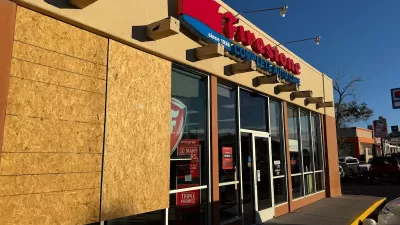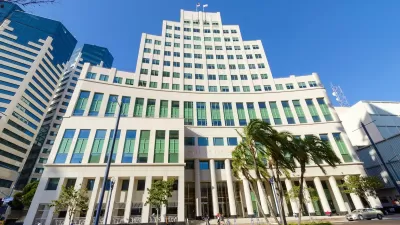Frank Greene and Kenneth Ricci discuss the changing paradigms of half a century of justice architecture and what we should ask — and expect — from courts and jails.

Like hospitals, stadia, and shopping malls, the structures of the criminal justice system demand complex spatial considerations, and architects specialized in meeting them. But with individual lives and liberties in the balance, buildings like courts and jails inspire ethical questions and social consequences beyond the scope of other public structures. Frank Greene and Kenneth Ricci, principals of New York based RicciGreene Associates, provide architectural and planning services for courts, jails, and juvenile detention facilities in the region and across the nation. Over five decades in the practice of justice architecture, they have witnessed a succession of approaches to corrections and detention, from rehabilitation to punitive mass incarceration, and back to rehabilitation. While some of today’s best practices are nothing new, signs of growing support for smaller-scale, local, and more humane approaches to incarceration today are encouraging. Below, Greene and Ricci talk about the roles courts and jails play — and should play — in the criminal justice system and in how cities and counties address pressing social problems. And they outline their role as justice architects, not only in designing environments to cue desired behavior, but using planning tools to change the minds and actions of clients who want to build more and bigger jails.
FULL STORY: What Jail Can't Do

Planetizen Federal Action Tracker
A weekly monitor of how Trump’s orders and actions are impacting planners and planning in America.

Congressman Proposes Bill to Rename DC Metro “Trump Train”
The Make Autorail Great Again Act would withhold federal funding to the system until the Washington Metropolitan Area Transit Authority (WMATA), rebrands as the Washington Metropolitan Authority for Greater Access (WMAGA).

DARTSpace Platform Streamlines Dallas TOD Application Process
The Dallas transit agency hopes a shorter permitting timeline will boost transit-oriented development around rail stations.

Jersey City Latest to Ban Rent-Setting Algorithm
Officials say the software offered by RealPage ‘magnifies’ the potential for price gouging.

Parks: Essential Community Infrastructure — and a Smart Investment
Even during times of budget constraint, continued investment in parks is critical, as they provide proven benefits to public health, safety, climate resilience, and community well-being — particularly for under-resourced communities.

Porches, Pets, and the People We Grow Old With
Neighborhood connections and animal companions matter to aging with dignity, and how we build can support them. Here’s a human-scale proposal for aging in place.
Urban Design for Planners 1: Software Tools
This six-course series explores essential urban design concepts using open source software and equips planners with the tools they need to participate fully in the urban design process.
Planning for Universal Design
Learn the tools for implementing Universal Design in planning regulations.
City of Charlotte
Municipality of Princeton
City of Camden Redevelopment Agency
City of Astoria
Transportation Research & Education Center (TREC) at Portland State University
US High Speed Rail Association
City of Camden Redevelopment Agency
Municipality of Princeton (NJ)





























